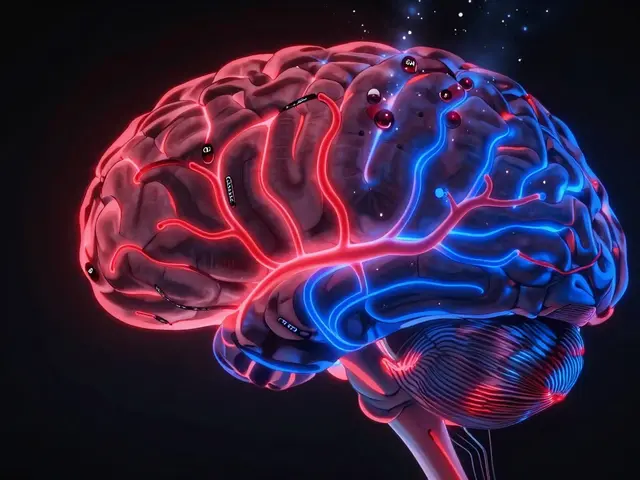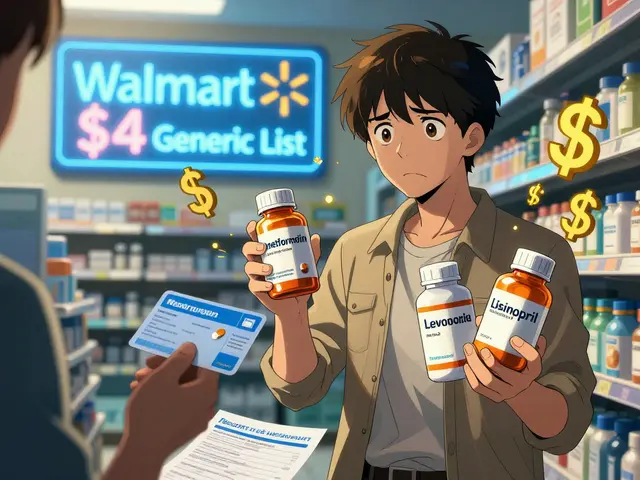You see it pop up in forums, talked about in private Facebook groups, or written on your prescription pad: Celexa. Maybe your doctor mentioned it over a rushed appointment. Maybe your buddy down the street said it mellowed him out. Whatever the case, Celexa keeps showing up in conversations about depression, anxiety, or feeling like your head’s stuffed full of static. So, what’s the real story with this pill?
What Exactly Is Celexa?
Celexa is the brand name for citalopram, and its badge of honor is sitting in the SSRI club. SSRIs—selective serotonin reuptake inhibitors—are a group of meds people get prescribed for depression and sometimes anxiety. The idea? They boost serotonin, a brain chemical involved in mood, emotion, and basically whether you smile at your dog in the morning or scowl at your phone. Celexa’s been on the market since 1998 in the US, and it quickly became a go-to because it was seen as effective and didn’t have the baggage of older meds. The FDA officially stamped its approval for treating major depressive disorder, but doctors will use it for other stuff too, like panic attacks or obsessive-compulsive disorder (even if official paperwork doesn't always say so).
Is it addictive? Not in the way narcotics or benzos are. You’re not going to be breaking into your neighbor’s house looking for Celexa. But does your body get used to it? For sure. If you stop suddenly, withdrawal can feel brutal—head zaps, irritability, dizziness. That's why you need a game plan with your doctor if you're ever quitting. Dosing usually starts low (like 10mg a day) and can go up to 40mg, though many stick to the low end. It’s a once-a-day pill, so at least it’s not another scheduling nightmare. And unlike some antidepressants, Celexa doesn’t jazz you up—it’s not a stimulant. So, no staying up all night rearranging your closet or writing weird poetry on the ceiling. But don’t expect it to kick in overnight, either. Most folks won’t feel a big difference for two to four weeks. Some people get relief sooner, but for many, it’s a slow burn.
One surprising fact about Celexa? It’s one of the cheaper SSRIs out there. If you’re paying out-of-pocket or dealing with a stubborn insurance company, that can matter—a lot. Generic citalopram is usually available, and it works the same as Celexa. If your pharmacy wants to swap your brand name for the generic, you’re basically getting the same stuff, just a label change.
Here’s a quick table of how Celexa stacks up to other common SSRIs:
| Drug Name | Brand Name | FDA Approved Uses | Common Starting Dosage (mg) | Generic Available? |
|---|---|---|---|---|
| Citalopram | Celexa | Depression | 10-20 | Yes |
| Escitalopram | Lexapro | Depression, Anxiety | 10 | Yes |
| Sertraline | Zoloft | Depression, Anxiety, PTSD, OCD | 25-50 | Yes |
| Fluoxetine | Prozac | Depression, OCD, Panic, Bulimia | 10-20 | Yes |
How Does Celexa Work in Your Brain?
Imagine your brain has these tiny gaps—synapses—where messages jump from one nerve cell to another. Serotonin is the messenger, and the transporter proteins are like vacuum cleaners, sucking up leftover serotonin. Celexa tells those vacuums to chill out. When that happens, more serotonin hangs around, and your brain gets better at mood regulation. People with depression often have low serotonin levels, and the SSRI boosts what you’ve got.
Citalopram is known for being pretty “clean” in how it works. It doesn’t mess with other brain chemicals as much as older antidepressants, which means fewer weird side effects like sedation or gaining tons of weight. It also means it usually plays nicer with other meds—though not always, so don’t go mixing it with everything in your medicine cabinet. Because of its targeted action, Celexa rarely causes things like dry mouth or constipation that older antidepressants, like tricyclics, were infamous for.
Bear in mind, though, that brains are weird, and everyone reacts differently. Some people swear Celexa makes them feel “themselves” again. Others complain it flattens their world—less sadness, but also less joy. You’ll hear about some folks gaining weight, feeling sleepy, or dealing with sexual side effects (like trouble having orgasms or lower libido—yeah, awkward, but real). A study published in The Lancet in 2018 found that sexual dysfunction affects up to 50% of people on SSRIs, including Celexa. That’s a huge number if you compare it to placebo rates. But on the plus side, Celexa isn’t as associated with panic, jitteriness, or insomnia as some of the other SSRIs. Everyone’s chemical makeup is different, so your mileage may vary.
One psychiatrist told Psychology Today,
"No two people respond exactly the same way to any antidepressant, and Celexa is no exception. It’s about trial and error, patience, and staying in close touch with your prescriber."That hits home—don’t get discouraged if things don’t feel perfect right away. Sometimes it’s just a question of adjusting dose or swapping meds.
What Are the Side Effects and Risks?
Let’s just say it outright: every medicine has the potential to make you feel lousy before it helps you feel better, and citalopram is no exception. Most people tolerate Celexa without a ton of drama, but there’s stuff to know. Common side effects early on include nausea, dry mouth, sleepiness, and sometimes headache. Usually, these problems chill out within a few weeks. It’s your body getting adjusted. Still, about 1 in 10 people have to ditch Celexa because they just can’t handle the side effects by week four or five.
Sexual side effects are the elephant in the room—lower sex drive, delayed orgasm, or sometimes no orgasm at all. These can linger the whole time you take the drug, disappear after a few months, or not show up at all. It’s pretty unpredictable, but worth tracking. Don’t keep it to yourself if it’s bugging you. Docs are used to hearing the question and can help with tweaks.
Now, for the serious stuff. Celexa has a dose-dependent risk for a thing called QT prolongation. That’s a fancy way of saying your heart’s electrical rhythm can get thrown off—rare but potentially deadly. Because of this, the FDA capped the max daily dose at 40mg (and only 20mg for older folks or people with heart problems). You need to avoid mixing it with certain meds that also hit your heart rhythm or increase citalopram levels—some antibiotics, antipsychotics, or antifungals. On rare occasions, a severe allergic reaction can develop, which means hives, trouble breathing, or swelling—typical "call 911 now" stuff. Another risk is a sudden drop in blood sodium, which is more likely if you’re older or take water pills. If you notice confusion, severe headache, or drowsiness, that can be a sign your sodium's tanked.
Celexa also carries the usual SSRI warning about suicidal thoughts in people under 25. It sounds scary, but it’s about watching out for a brief window early in treatment when you have more energy but your depression hasn’t lifted yet. That’s why doctors check in more often after starting or increasing the dose.
Here’s a quick breakdown of what some folks report most often in terms of side effects, according to a large survey from Medscape:
| Side Effect | Reported Rate |
|---|---|
| Nausea | 20% |
| Dry mouth | 16% |
| Sexual dysfunction | up to 50% |
| Fatigue | 15% |
| Insomnia | 11% |
Long story short: watch out for weird heart symptoms, mood swings, or allergic reactions, and keep your prescriber in the loop. Most people do fine, but don’t treat it like a vitamin. It’s a real-deal medication.

Tips for Taking Celexa and Making It Work for You
If you’re new to Celexa, you’ve probably got a pile of questions. Here are some concrete tips, the kind your doctor might not always have time to walk through:
- Take it at the same time every day. Morning or night is fine, but pick a time and stick to it. If it makes you sleepy, try night. If it wakes you up, stick with morning.
- Don’t mix with certain meds or supplements. Even simple things like St. John's Wort or over-the-counter cold meds can cause trouble. Always double-check with your pharmacy.
- If you miss a dose, don’t double up the next day. Just take your regular dose and move on. Doubling makes side effects worse.
- Keep track of your mood and symptoms in a journal or app. This makes it tons easier to spot patterns or talk to your prescriber if you need an adjustment.
- Expect a slow start. Most antidepressants take time to build up—you might feel worse before better. It helps to know the timeline so you’re not caught off guard.
- Be honest about side effects, even the embarrassing ones. Your doctor has heard it all. The more details you share, the better the help you’ll get.
- Don’t quit cold turkey—talk to your doc if you want off. They’ll help you go slow so withdrawal isn’t awful.
- Don’t worry if you don’t “feel happy.” Antidepressants are better at helping you feel less miserable than making you jump for joy. The goal is to function again, not be on cloud nine 24/7.
- Combine it with therapy if you can. Studies show pairing meds with cognitive-behavioral therapy leads to better, longer-lasting results. It’s not cheating—just smart strategy.
- Watch what you drink: Alcohol can pump up side effects or hit your liver harder. A drink here and there is usually okay for most, but it’s good to ask first.
- If you’re pregnant, planning, or breastfeeding, always talk to your prescriber. Celexa has a lower risk than some other options but isn’t 100% risk-free.
- Be alert for signs of serotonin syndrome—a rare but dangerous reaction. Signs include shivering, fast heartbeat, sweating, confusion, or muscle twitching. Go to the ER if those show up.
There are real stories, too, of folks who finally got their life back on track after finding the right dose. One Redditor posted, “Celexa saved my marriage. I just wish someone had told me I might have less sex drive—I would’ve been better prepared.” You don’t have to fly blind. Plug into online support groups, read others’ experiences, and keep the dialogue going with your healthcare team.
Who Shouldn’t Take Celexa and What to Ask Before Starting
Not everyone is a good candidate for Celexa. If you have a long history of heart rhythm problems, seizures, or severe liver disease, this one’s probably not your med. Same goes for people with bipolar—SSRIs can sometimes flip depression into mania if you’re prone to it. Always give your doc the full run-down on your health and every single pill, supplement, or powder you take, even if it’s just vitamins. The smallest thing can cause trouble. And nobody wants to find out the hard way.
For older adults, the watchword is “go low and go slow.” Doses over 20mg boost heart risks. Even with the lower dose, routine check-ups and sometimes an EKG are the norm.
If you’re pregnant, talk it through carefully. Celexa is considered safer than some other antidepressants, but not risk-free—research shows a tiny increase in birth defects if taken in the first trimester. But for many, risk of depression outweighs possible side effects. Bottom line, it’s a personal call made with your medical team. Breastfeeding? Celexa passes into milk, but the levels are low, and most experts say it’s okay—with close monitoring.
Here are some questions to ask before filling that first prescription:
- What side effects should I watch for and report right away?
- How long before I might start feeling better?
- How will we decide if it’s working or if I should try something else?
- What other steps can I take for my mental health?
- Do I need any heart monitoring or follow-up tests?
Doctors want patients engaged and asking questions—it’s not annoying, it’s smart.
What Do Real People Say? Lived Experience Across the Spectrum
If you hunt through mental health forums, you’ll find a crowd with mixed opinions on citalopram. Some folks say it was a total game changer—the fog lifted, they found motivation, colors seemed brighter. Others roll their eyes and say it felt like flipping a switch from sadness to emotional numbness. One thing nearly everyone agrees on is that patience matters. In a big WebMD survey of people taking Celexa, about 65% said they stuck with it over six months, mainly because it was "steady" and didn’t make life feel weirder.
Celexa tends to have a smoother side effect profile than Prozac or Paxil, but still, the sex drive conversation comes up a lot. It’s not usually a dealbreaker, but for some, it is. Then there are those who say it made them yawn all day or gain 10 pounds they didn’t want. Nobody’s story is exactly the same. Some say food cravings go up, while others have a drop in appetite. One thing’s common: nearly everyone says the decision to start, continue, or stop the med is way better made with a solid, open relationship with a prescriber. Therapy, group support, or even just regular check-ins with friends can make the process smoother. There’s no shame in switching meds until you find the right fit.
When it works, Celexa can do more than just take the edge off depression or anxiety. People talk about being able to focus at work, laugh at a joke, or pick up a hobby again. No miracle cure, but a solid tool in the toolbox. And if Celexa isn’t the answer? There’s always another option. Mental health is a journey, not a single road.






Brandi Busse
June 15, 2025 AT 12:56